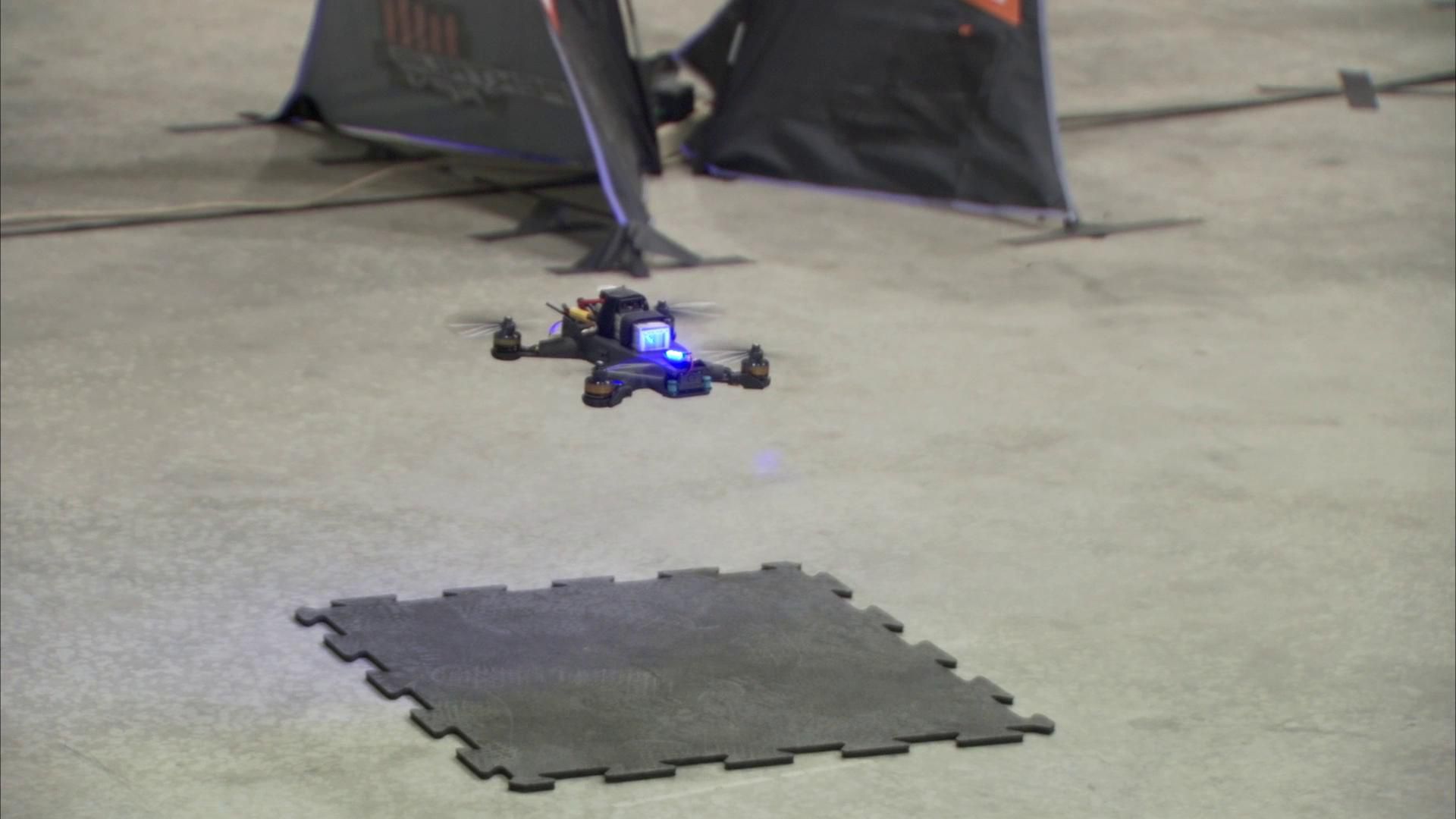NASA's JPL holds a drone race between a human and A.I.
NASA's Jet Propulsion Laboratory (JPL) put three computer-flown drones up against a human to see if people make better pilots. The answer? For now.
JPL built three custom drones using Google Tango technology as the A.I. and nicknaming the drones Batman, Joker and Nightwing. (Someone is a DC Comics fan.)They put the drones through an obstacle course that included tight turns and flying through hurdles .
Drone racing pilot Ken Loo pushed his quadcopter through in just 11.1 seconds — improving as he repeated the moves, and learning the twists and turns. The computer flown drones completed the course in an average 13.9 seconds.
Most telling, though, was the smoothness of flying — and here is where A.I. won. The computer-driven drones moved more consistently, and didn't display the same "jerkier" movements, says Rob Reid of JPL, the project's task manager.
"We pitted our algorithms against a human, who flies a lot more by feel," says Reid. "You can actually see that the A.I. flies the drone smoothly around the course, whereas human pilots tend to accelerate aggressively, so their path is jerkier."
Although JPL designed the drones to fly as quickly as 80 mph, they could only get to speeds between 30 mph and 40 mph because of the indoor course built in a warehouse at JPL.
Google underwrote the research, interested in JPL's vision-based technology used to fly spacecraft, wanting to see if that same science could be used for drones, which normally use GPS tracking to orient themselves while in flight. JPL's solution uses cameras instead matching that information to pre-loaded maps, and using Google Tango as the A.I. in the drones. (JPL also worked on Google Tango as well.)
The research work took two years — and JPL believes eventually A.I. will fly faster and more predictably than a human ever could.
Already, autopilot technology is in use in commercial aircraft. And self-driving cars are certainly getting a big push from automakers and technology companies, which at their most advanced, would make every driving decision for its human passengers. Even drone manufacturers are proposing self-flying air taxis, which would be run through A.I., with Boeing one of the most recent companies to invest in this technology.
Still, A.I. has some notable naysayers including Tesla's own founder Elon Musk who continues to issue warnings about the potential dangers of A.I. in the future, and a need to create laws around the technology to protect humans. That did little, however, to stem the enthusiasm from JPL which sees its A.I.-powered drones, at least, eventually beating humans, on this front, in the end.
"Our autonomous drones can fly much faster," Reid says. "One day you might see them racing professionally!"
